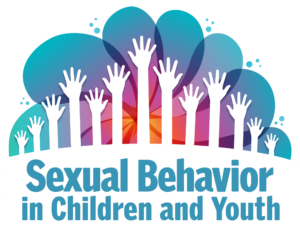By: Kalin Goble, MS
“We are a product of our environment.” Most of us are more than familiar with this saying, and the sentiment rings true in everything we do. Our history, connections, family, and friends help to create the person we are. Our experiences continuously shape who we will become. It’s incorporated in the work we do. Whatever your occupation, you bring your life experiences, expectations, and knowledge to your professional role and to your interactions with those you serve.
In the latest Sexual Behavior in Children and Youth (SBCY) series webinar, “Engaging Families in Clinical Services: A Discussion on Engagement in the Family Advocacy Setting,” we discuss how service providers and families engaged in clinical services are impacted by their unique history and experiences. And how these factors shape the work of supporting children exhibiting problematic sexual behavior (PSB) and families impacted by PSB.
During each developmental stage, children experience unique milestones of celebration and unique challenges to overcome. As children grow and discover the world around them, it is normal for young children to become curious about their bodies. Young children begin to explore sexual behavior. These behaviors fall on a continuum from developmentally appropriate behaviors normative to their age and social-emotional growth, to cautionary, to problematic. More information about the continuum of PSB, including how these behaviors often show, can be found here.
When families seek intervention and begin working with clinicians for the next steps in addressing PSB, practicing mindfulness and self-reflection in the provider role can be a key factor in establishing meaningful, impactful relationships with families.
Overcoming barriers and building connections…
In today’s environment, our connection and engagement with one another have fundamentally shifted. Is it often difficult to find true connection and engagement with new acquaintances. This is no less true when connecting with caregivers and families currently dealing with behavioral problems with their children on top of the added stressors of the COVID-19 pandemic. Client’s past experiences with other services and/or helping professionals may impact their willingness to become open and receive the assistance provided.
Caregivers, fellow professionals, and families may believe common myths associated with PSB. Some common misconceptions include: there is little to no hope for the future, children exhibiting PSB can’t live with other children, or that youth will grow up to be adult offenders. There is no evidence suggesting this is the case. While there are some common factors associated with certain behaviors, there is no distinct profile or clear pattern of demographic, psychological, or social factors in youth exhibiting PSB. For more information on the impact of PSB, watch our SBCY webinar, “Problematic Sexual Behavior: The Importance of a Multidisciplinary Evidence-Based Approach.” We also covered how to dispel common misconceptions and strategies for connecting with professionals across disciplines to best serve families and those impacts by PSB. Fully understanding how families, children, and non-offending caring adults are impacted by this can go a long way when beginning the journey of advocating for these clients.
Working collaboratively to create a space of safety…
By the time caregivers and families reach you, they are probably experiencing feelings of trepidation, judgment, and concerns of confidentiality. This may lead to a reluctance to share or engage during sessions. Spend some time orienting yourself to what the family may be experiencing, taking into consideration external factors, added stressors, common stigmas around this topic, and cultural considerations. Prior to your initial meeting, you may take some time to think of how their environment has shaped them.
To prepare yourself to meet with the family and begin delving into these often hard to discuss experiences, take a few breathes in between meetings to check in with yourself. Ground yourself in your breath and allow the past and future to fall away. Breathe in and breathe out and give the air moving through your lungs your full attention. Allow the past and future to fall away as you focus on the now. In service areas that require significant emotional labor, finding moments to be mindful can go a long way in managing your personal feelings and preparing to meet the emotional requirements of meeting with new clientele and families. For some more suggestions on building mindfulness into your professional work, watch our “Healthy Moms, Happy Babies I: Supporting Staff to Help Families Remotely” webinar.
Orienting yourself to the family’s experiences…
It is important to not assume the caregiver has been given information about meetings, services, or how they can be utilized. This will allow you to identify and address other needs the family may have, along with the mental health clinical services being provided. This can help inform you as you prepare to introduce yourself, your expected role, and what this process will look like for the family.
Keep in mind the overall message that this is hard, but we are on your team and will work together to get through this. Working to find a common goal with the caregiver and acknowledging they have taken the first step to show they care by just showing up and being there with you will help set foundations for collaboration between yourself, the family, and potentially involving other external systems. And this support will continue to grow as you get to know your clients through each session. By preparing to navigate and address these concerns, you can work in collaboration with the family and give them tools and strategies to work through the needs of the family.
Walk-in their shoes…
Sometimes, you may feel disconnected and may find yourself investing less when working with families. Burnout may be looming due to working with such difficult cases, especially if the number of clients is adding up and becoming overwhelming. Working to put ourselves in the caregiver’s shoes and understanding their experience allows the perception to shift. Focusing on what they are going through, and helping empathize and understand their reactions allows you to advocate for them and listen to their specific needs.
Carl Rogers notes, “Being empathetic is seeing the world through the eyes of the other, not seeing your world reflected in their eyes.” Putting aside your personal thoughts, feelings, and behaviors and focusing on the client and their experiences will help in building a strong foundation in working to best support the family in stressful, seemingly overwhelming times. As a family advocate, reframing work with clients to best understand how their environment and past experiences lead them to you will also help shift your energy to best help those you are working with. By working together, we create a better environment for every member of the family and their community to move forward towards their success!
Continuation of the SBCY Series…
Read more takeaways in our “Go Beyond the Webinar” blog post for this webinar. If you would like to watch the archived recording of the webinar, visit oneop.org/event/79982/. Free continuing education credits for this event are still available from select agencies through December 2022. Visit the webinar page to get more details on CE credit.
 We will continue our exploration of this topic area in our February 25, 2021 webinar “Overview of Treatment for Children Impacted by Problematic Sexual Behavior of Other Youth.” In this session, Dr. Esther Deblinger provides an overview of treatment for caregivers and children impacted by the PSB of other youth using a Trauma-focused Cognitive Behavioral Therapy (TF-CBT) framework. Find more information and RSVP for the session on Thursday, February 25, 2021 by visiting the event page at oneop.org/event/85670
We will continue our exploration of this topic area in our February 25, 2021 webinar “Overview of Treatment for Children Impacted by Problematic Sexual Behavior of Other Youth.” In this session, Dr. Esther Deblinger provides an overview of treatment for caregivers and children impacted by the PSB of other youth using a Trauma-focused Cognitive Behavioral Therapy (TF-CBT) framework. Find more information and RSVP for the session on Thursday, February 25, 2021 by visiting the event page at oneop.org/event/85670
Explore all archived and upcoming programming in the SBCY series by visiting oneop.org/childsexualbehavior.















